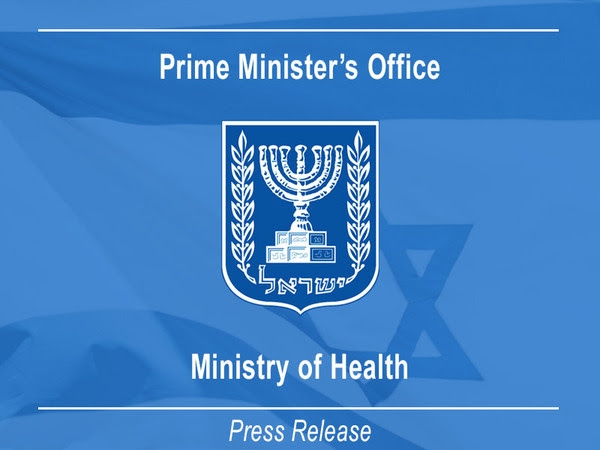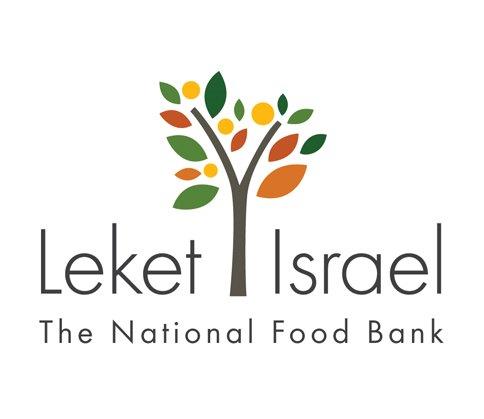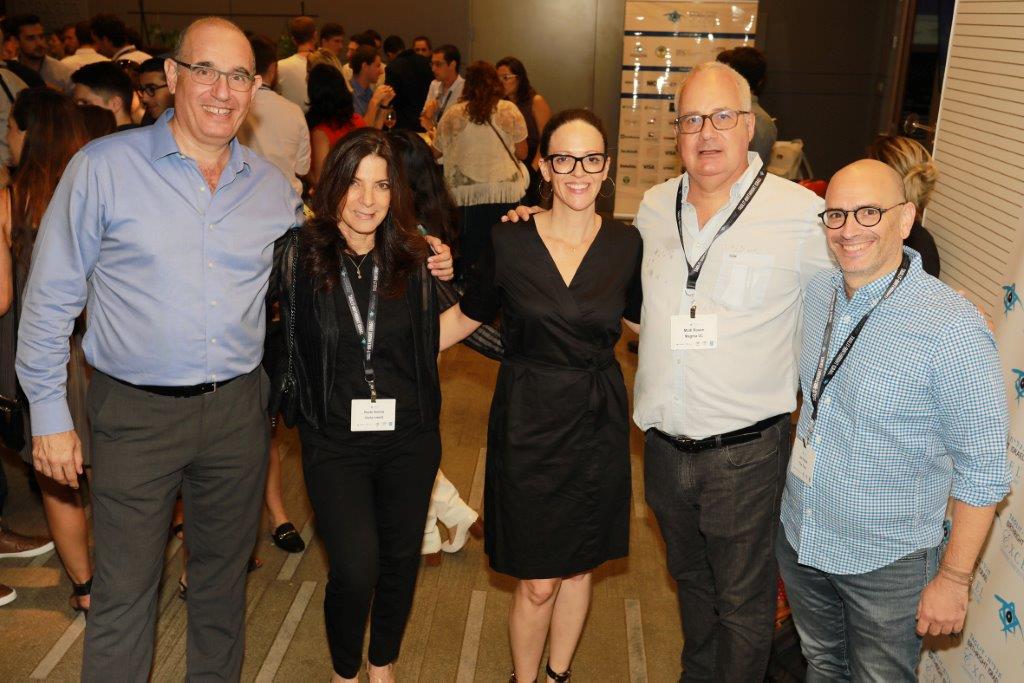Visits
- Details
- Written by Prime Minister's Office and the Health Ministry

Pursuant to its meeting last Thursday, the Corona Cabinet yesterday afternoon (Friday, 30 October 2020), before the start of Shabbat, in a conference call, approved the detailed regulations as submitted by the Health Ministry:
* It will be possible to hold training and competitions for competitive athletes, children and youth, and in swimming and motor sports, for adults as well.
* It will be possible to hold driving lessons subject to the instructions for traveling in a private vehicle – a driver and up to two passengers in the vehicle.
* It will be possible operate social affairs institutions and additional social services enumerated in article 11b of the law, that are not solely for essential social care. This amendment will, inter alia, allow the operation of services in the context of 'day centers and senior citizens clubs' and services to counteract loneliness designated for senior citizens including those who are not in social service frameworks operated by local councils, as well as libraries for the blind.
* It shall be permitted to operate a venue for training or competition for professional and competitive athletes.
* In addition to the operation of nature reserves and national parks, it shall also be permitted to operate open spaces at heritage sites and antiquities sites.
* B&B's: It shall be possible to operate a lodgings compound with up to four completely separate guest units, with each unit serving people who live together only. Operating a lodgings compound in a manner that contravenes these conditions constitutes an offense the fine for which will be NIS 5,000.
* It will be possible to operate places for providing non-medical treatment to the human body such as barbershops/hair salons, beauty treatments and cosmetics, as well as complementary medical care, subject to the conditions determined in the regulations, including the requirement of advance coordination. Included herein are treatments such as riding therapy, mental or emotional therapies and use of therapeutic pools.
* Areas for screening drive-in films may be operated.
* Prayers: Up to 10 people shall be allowed in structures and up to 20 people in open areas. It should be emphasized that the foregoing means prayers only. Prayers in a house of worship by more people than is permitted constitutes a criminal offense (the fine for which is NIS 500 for each person present).
* Events such as weddings, parties, organized trips or ceremonies may be held with up to 10 participants in structures or 20 participants outside.
* Organizing or participating in events such as sporting events, conferences, festivals or entertainment and arts shows are prohibited.
* Persons operating public, commercial and private venues are prohibited from holding forbidden events; people providing services (such as photography, catering, music, lighting and infrastructures) shall likewise be barred from providing services for a forbidden event or an event in which the number of participants shall exceed that which is permitted. Violating this directive is subject to a fine of NIS 5,000.
* Persons operating public or commercial venues, the entry to which is to be coordinated or is by advance invitation shall be obligated to keep information in order to deliver it if necessary in order to carry out an epidemiological test (such as places for providing non-medical or complementary medical treatments on the human body).
These regulations shall be valid until 14 November 2020.
These regulations shall take effect at 06:00 tomorrow (Sunday, 1 November 2020). The regulation regarding limits on events and possible criminal offenses shall take effect at 14:00 tomorrow. The regulation regarding operation of a training venue for competitive or professional athletes shall take effect today (Saturday, 31 October 2020).
- Details
- Written by Silvia

Loss Affects Cost of Living: Increases Food Prices by 11%
An average family in Israel wastes $890 worth of food per year: equivalent to a month and a half of household food consumption expenditure
According to Report: Israeli households second most wasteful as compared to the EU-27 countries
Raanana, Israel – March 5, 2019: Leket Israel, in partnership with BDO, released its Fourth Annual Food Waste and Rescue Report. The report presents, for the first time in Israel, a detailed model for the estimation of food loss in the household consumption sector, its value and impact on households in Israel and how Israelis compare to other countries around the world.
The Food Waste and Rescue Report reveals that food loss in Israel this year amounts to 2.5 million tons (5.5 billion pounds) with a market value of NIS 19.7 billion (US $5.5 billion), 35% of all food produced. Almost half of this loss, 1.2 million tons (2.6 billion pounds), is rescuable and valued at NIS 7 billion (US $2 billion).
The findings of the Report show that the loss in household consumption in Israel amounts to approximately 880,000 tons (1,940 million pounds) of food, at a value of NIS 7.9 billion (US $2.2 billion). An average Israeli family throws out food worth NIS 3,200 (US $890) per year, equivalent to a month and a half of household food consumption expenditure. The majority of the wasted food are fruits and vegetables, with Israeli households wasting 23% as compared to the US at 28% and Europe at 19%.
The Report reveals the impact of food loss on the cost of living: the effects of loss at all stages of the value chain increases food prices by 11% and the loss of food impairs productivity in the economy due to production and labor loss.
To close the food insecurity gap in Israel, necessitates the rescue of 20% of food wasted worth approximately NIS 3 billion (US $834 million). Food rescue makes this possible at a cost of only NIS 830 million (US $230 million), 72% of the cost. This can be accomplished without even quantifying its environmental benefits.
According to Gidi Kroch, CEO of Leket Israel: “The Report brings to light that the average Israeli family is throwing away a month and a half’s worth of food consumption every year at a value of NIS 3,200 (US $890). Instead of providing a targeted solution, such as fighting the prices of cottage cheese and dairy products, the State of Israel must recognize the many advantages of food rescue and formulate a national policy, set goals and prepare a budget. The national plan should cover the entire food value chain – from agriculture to retail and marketing to household consumption. In October 2018, the Knesset acknowledged the multiple benefits of food rescue and approved the law, “The Food Donation Act.” It is the responsibility of the next government to formally adopt food rescue as the primary solution to eliminating food insecurity in Israel and to place this crisis as a central issue on its agenda – economic, social and environmental.”
According to Chen Herzog, Chief Economist at BDO: “The cost of food loss, ultimately directly impacts the consumers’ pockets and affects the cost of living in Israel, causing an 11% increase in food prices. In addition, food loss impairs productivity in the economy due to production and labor loss. Therefore, policy for food rescue and redistributing it to disadvantaged sectors of the population is an effective economic plan in Israel, where a large part of household expenditure is on food. Food rescue is a winning solution, which closes the food insecurity gap by a direct savings of NIS 2.2 billion (US $604 million). When quantifying the social and environmental benefits, it’s a saving to the economy of more than NIS 4.5 billion (US $1.2 billion).”
For Full Report, Report Summary and Complete Media Kit: https://foodwastereport.leket.org/en/
About Leket Israel: In 2018, Leket Israel rescued 2.2 million cooked meals from IDF army bases, hotels catering companies, and restaurants and 15.5 thousand tons (51 million pounds) of agricultural produce worth NIS 150 million (US $41.5 million). All this rescued food was then redistributed to 175,000 needy people weekly through Leket Israel’s network of 200 nonprofit agency partners throughout Israel. For more information, please visit www.leket.org/en.
Facebook לקט ישראל Leket Israel
https://www.instagram.com/leket_israel/
- Details
- Written by Silvia G Golan

For the first time in Israel – A Therapeutic Relaxation Garden in the Maternity Ward which utilizes elements from nature with an emphasis on attention to the needs of the new mother. The garden, which cost about 1.5 million NIS and was a donation by Jewish National Fund – Holland, is located in the center of the Hillel Yaffe Medical Center Maternity Ward, and is unique product of the project’s architect, Zvika Kanonitz.
Today, Monday, June 18th, a therapeutic relaxation garden was inaugurated in the maternity ward of the Hillel Yaffe Medical Center in Hadera – the first of its kind in a hospital maternity ward in Israel. The garden, which cost about 1.5 million NIS and was donated by JNF Holland through the Keren Kayemet Le’Israel-Jewish National Fund (KKL-JNF) in Israel, was designed by Zvika Kanonitz, an architect with rich experience in therapeutic gardens.
The inauguration ceremony included members of JNF Holland and KKL-JNF in Israel, the Hillel Yaffe Medical Center management, maternity ward staff and more.
About the therapeutic garden – a relaxing and private experience in the maternity ward
The relaxation garden is built entirely of rejuvenating and comforting motifs for postpartum women – planned and designed exclusively for the new mothers. The garden includes walking paths made of pebbles for a reflexology massage for swollen feet, winding through shaded and intimate areas. Comfortable seating throughout is incorporated with plants to create a microclimate which shades and protects patients from the sun, and a small water pool at the foot of a green vegetation wall attracts butterflies and birds. The garden is located at the heart of the maternity ward in a closed courtyard that is only available to mothers and their newborns, and entrance to the courtyard is only available through the maternity yard. The area is carefully guarded to provide patients with a sense of comfort and security and provide a quiet and calm environment in the days after giving birth, before their return home.
JNF Holland President, Prof. Moshe Kon, said during the ceremony that, “We are happy for the cooperation that brought about not just any garden, but a piece of heaven. As a doctor, I understand the importance of a relaxing and healing environment and I am proud of the result. KKL-JNF will continue to support amazing social projects such as these for Hillel Yaffe, out of our sense of duty and commitment.
Director of the medical center, Dr. Miki Dudkevitch, said, “We are proud that we have the ability to provide our maternity patients not only a professional team and well-equipped department, but also a private garden accommodated specifically to their needs. I want to thank JNF Holland for the generous donation and to KKL-JNF for their collaboration along the way.”
KKL-JNF Chairman, Mr. Daniel Atar, sent his blessings and said that, “This is not a donation; this is an investment. There is no asset more worthwhile than humanity. There is no better investment than an investment in society, and there is nothing more important than investing in public health and equality. It is my privilege that the organization that I head is taking this part of the community’s mission and part of the country’s responsibility upon itself.”
Photo credit – Tal Zigdon
In the photo (R-L): Prof. Moti Halak, Maternity Division Director; Dr. Miki Dudkevitch, Hillel Yaffe Medical Center director; Dr. Amnon Ben Moshe, Administrative Director of Hillel Yaffe; Dr. Moshe Kon, JNF Holland President; Dr. Ehud Huchman, Deputy Director of the hospital; Mr. Freddy Rosenberg, JNF Holland CEO.
- Details
- Written by Silvia G Golan

Birthright Israel Knows Business
Prominent Israeli Business Executives celebrated with Students and Young Professionals from the US, Canada, Mexico and Israel who took part in the Annual Birthright Israel Excel Program
The fellows enjoyed a unique internship at leading companies and professional training & mentorship from Israel's top executives endowing them with a =deep understanding of the Startup Nation's business scene
Birthright Israel's business leadership program, Birthright Israel Excel, held its closing ceremony last week (July 8), at its Center for Israeli Innovation in partnership with the Tel Aviv Stock Exchange. The ceremony was held in the presence of managing partner at EY Israel and chairman of Birthright Excel,Yoram Tietz, Co-founder of Magma Venture Partners, Modi Rosen, General Partner & Founder at Viola Credit in Israel, Ruthi Simha, CEO at The Time Ido Pollak, Founder & CEO at FairFly, Aviel Siman-Tov and Gidi Mark, International CEO of Birthright Israel, as well as Excel Fellows, benefactors, mentors, partners and entrepreneurs.
At the closing ceremony of Birthright Israel Excel’s 2018 cohort, top Israeli chief executives celebrated with 54 students from 30 top universities in the US, Canada, and Mexico the conclusion of their 10-week professional business internship or startup pre-accelerator experience. During the course of their internships, the students received professional and personal mentoring from the companies’ leaders. The students were accompanied by 54 Israeli students and IDF officers who also took part in the program this summer.
The students, who were carefully chosen from thousands of candidates by Birthright Israel Excel, stayed in Tel Aviv for two months, during which, they got to meet with Israeli leaders from various fields, take part in tours and professional workshops and go through personal business mentorships and professional-academic internships that allowed them to get to know the Israeli business sector firsthand. CEOs from Israel’s top companies who met with the program’s participants included: CEO at Facebook Israel, Adi Sofer Teeni, Microsoft CEO of R&D Assaf Rappaport, Yossi Matias, Vice President, Engineering, at Google and the Managing Director of Google's R&D Center in Israel, CEO at LeumiTech, Yifat Oron, Founder, CEO at Healthy.io Digital Healthcare Yonatan Adiri, CEO at The Time Ido Pollak, Journalist and Creator of the TV show “Fauda” Avi Issacharoff among many others.
Upon their return to the United States, Canada and Mexico, the participants will join Birthright Israel Excel's broad community of Fellows, of approximately 700 members, where they will deepen their involvement with the community and focus on social and business activities. They will enjoy professional and personal mentorship provided by the fellowship’s advisors, who consist of senior businesspeople and philanthropists involved with the Jewish community and Israel.
Photo Avishai Finkelstein
- Details
- Written by Super User
Crypto experts to discuss the future of blockchain in Israel on March 28 at Blockchain & Bitcoin Conference Israel
On March 28, Tel Aviv will host Blockchain & Bitcoin Conference Israel, a large conference dedicated to blockchain, cryptocurrencies and ICO. Speakers will discuss the future of the crypto industry, and blockchain companies will present their new developments.
Why Israel?
Blockchain community said that Israel is the startup nation. The country started to develop blockchain in 2015, and a year later, according to the audit company Deloitte, there were about 500 fintech startups.
In addition, according to the Bloomberg 2017 Innovation Index report, the economy of Israel is among the Top 10 most innovative world economies. It is not surprising, since the
country allocates 4.25% of annual GDP to research and development.
Such a development of fintech is facilitated by the Israeli authorities. The country has a state incubator supporting startups. And Investment Law allows foreign companies to
reduce the rate of tax deductions to 10%, which makes the state attractive for foreign entrepreneurs. In addition, the Israeli Venture Capital Industry ranked 5th in the world for
venture capital availability.
Israel is also one of the countries where cryptocurrencies have no defined legal status, but are still subject to taxation. Israel Tax Authorities issued a statement saying that any
business connected with cryptocurrency should pay taxes on profits. Thus, cryptocurrencies in Israel are in fact included into the legal field. In addition, the authorities
have intentions to protect the interests of investors and entrepreneurs by controlling the ICO. To do so, the national securities regulator ISA has created a special committee
aiming at finding out whether the securities legislation is suitable for ICO regulation.
Activities and participants
Guests of Blockchain & Bitcoin Conference Israel are entrepreneurs, developers, investors, founders of blockchain startups, lawmakers, marketers, miners, traders, lawyers
and crypto enthusiasts.
The event will be held in the format of ‘conference+demozone’. The conference discussions will focus on the blockchain development in 2018. Being top experts, the
speakers will share their experience of integrating blockchain into business, talk about the regulation of cryptocurrencies and tokens in Israel and abroad, as well as advise in which startups it is better to invest.
The demozone will bring together companies of the crypto industry from around the world, demonstrating their achievements and developments, as well as presenting their services.
Event organizer
The event is organized by the international company Smile-Expo, which has been carrying out events from the Blockchain & Bitcoin Conference network since 2014. Currently, its
portfolio includes 16 countries. And Blockchain & Bitcoin Conference Moscow, held in November 2017, was the largest one in the CIS according to the Analytical Center under the Government of the Russian Federation.
Follow the news of the event and the program updates on the official website of Blockchain & Bitcoin Conference Israel.
Page 1 of 2









